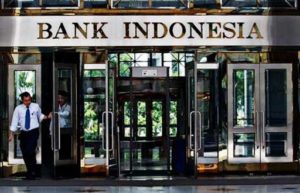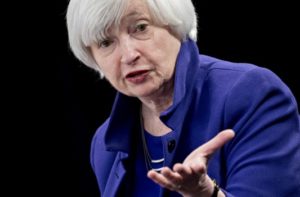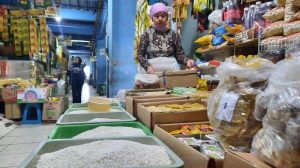Jakarta, 09 Jumadal Awwal 1437/18 February 2016 (MINA) – Bank Indonesia, the central bank, cut its main interest rate for a second consecutive month and lowered the primary reserve-requirement ratio for lenders to help shore up an economy hit by slumping exports.
Governor Agus Martowardojo and his board lowered the reference rate by 25 basis points to 7 percent, Bank Indonesia said Thursday.
That’s in line with the forecasts of 17 of the 28 economists surveyed by Bloomberg, while the rest predicted no change. The monetary authority also lowered the reserve-requirement ratio by 100 basis points to 6.5 percent.
Also Read: Indonesia Elected as Member of UN Board of Auditors for 2026–2032 Term
Asian economies from Japan to Singapore are seeing exports collapse, putting pressure on policy makers to act as the growth outlook deteriorates.
As inflation threats ease because of lower oil prices, central bankers in countries such as Indonesia, a net oil importer, have more room to loosen their monetary stance.
Expectations are mounting that authorities in China, India, Thailand and elsewhere may do so, Mi’raj Islamic News Agency (MINA) quoted bloomberg.com as reporting.
“The bank seems keen to front-load monetary-policy easing,” Glenn Maguire, the Singapore-based chief economist for Asia Pacific at Australia & New Zealand Banking Group Ltd., said before the decision.
Also Read: Palestine Solidarity Month 2025: AWG and Indonesian Parliament Hold “Solidarity Run for Palestine”
“The bank notes that some of the factors that have historically impeded their propensity to ease, such as the current and fiscal accounts, are likely to be improving through 2016.”
Bank Indonesia also cut the rate it pays lenders on overnight deposits, known as the Fasbi, to 5 percent from 5.25 percent.
Inflation, Growth
Inflation in Indonesia eased to 4.1 percent in January from 6.96 percent recorded a year earlier. The central bank said Thursday it expects inflation at the “mid-point” of the 3 percent to 5 percent range in 2016, and projected the year’s economic growth at 5.2 percent to 5.6 percent.
Exports plunged 21 percent in January from a year ago, more than the median estimate for a 15.2 percent decline in a Bloomberg survey.
Also Read: Online Gambling Transactions Drop 57% Following PPATK–Kominfo Crackdown
President Joko Widodo is seeking to revive an economy that grew at the slowest pace last year since the end of the global financial crisis in 2009. He said in an interview on Feb. 11 that while the central bank was independent, he would like interest rates “to fall, fall, fall, fall, and keep falling so the real sector can compete with other countries.”
The economic affairs minister echoed that view Thursday before the rate decision, saying he wants interest rates to fall faster.
The government, the Financial Services Authority and Bank Indonesia will form a team to coordinate efforts to lower rates and the cost of funds at banks, Coordinating Minister for Economic Affairs Darmin Nasution told reporters in Jakarta. (R07/R01)
Mi’raj Islamic News Agency (MINA)
Also Read: 369 Youth Trained by Religious Affairs Ministry as Peer Educators to Prevent Child Marriage


































 Mina Indonesia
Mina Indonesia Mina Arabic
Mina Arabic